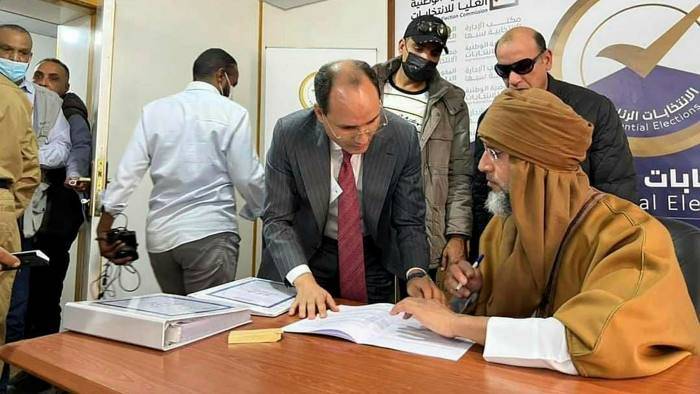UN offers mediation to put Libya back on path to election

Stay tuned with 24 News HD Android App

The United Nations' top official in conflict-ravaged Libya offered Friday to mediate in a bitter dispute over a framework for postponed elections, warning against "escalation" after a parallel government took office.
Stephanie Williams' offer came a day after the country's eastern-based parliament swore in a prime minister in a challenge to interim premier Abdulhamid Dbeibah -- a move observers fear could tip Libya into a new schism.
Williams, UN chief Antonio Guterres' Special Advisor on Libya, warned Friday in a series of tweets that "the solution to Libya's crisis does not lie in forming rival administrations and perennial transitions."
She said she had written to the leaders of both the eastern-based House of Representatives and the High Council of State, an upper house based in Tripoli, "inviting them to nominate six delegates from each chamber to form a joint committee dedicated to developing a consensual constitutional basis."
Her proposal comes after presidential and parliamentary elections, set for December 24 as part of a UN-brokered peace process, were abandoned amid bitter disputes over their constitutional and legal footing as well as the candidacies of several highly contested figures.
Their indefinite postponement dashed hopes of drawing a line under a decade of conflict since the 2011 revolt that toppled dictator Moamer Kadhafi.
The country endured two rival governments from 2014 to early 2021, when Dbeibah's administration was approved by key factions after a ceasefire late the previous year.
On Thursday, despite months of UN-led efforts aimed at re-unifying its institutions, Libya found itself once again with two prime ministers -- Tripoli-based Dbeibah, who has refused to cede power except to an elected government, and former interior minister Fathi Bashagha, backed by the parliament hundreds of miles to the east.
In his inaugural speech, Bashagha accused Dbeibah and his allies of shutting the country's airspace and detaining three ministers to prevent them reaching the assembly to be sworn in.
Williams on Friday stressed "the fundamental importance of preserving security and stability, and refraining from all acts of escalation."
She also urged the country's politicians to "engage constructively together to move towards elections, for the sake of the 2.8 million Libyans who registered to vote" last year.
She proposed to convene the joint committee on March 15 and to produce a consitutional framework.
There was no immediate public response to her proposal from the upper or lower house.
Kadhafi scrapped Libya's constitution after seizing power in a 1969 coup and ruled for four decades through a mixture of a personality cult, tribal alliances, petrodollar patronage and manipulating the military to avoid further coup attempts.
After he was ousted and killed in the NATO-backed uprising, Libyan politicians agreed on a "constitutional declaration".
In 2017, a committee submitted a proposed constitution to parliament, which was meant to organise a referendum -- but never did.
